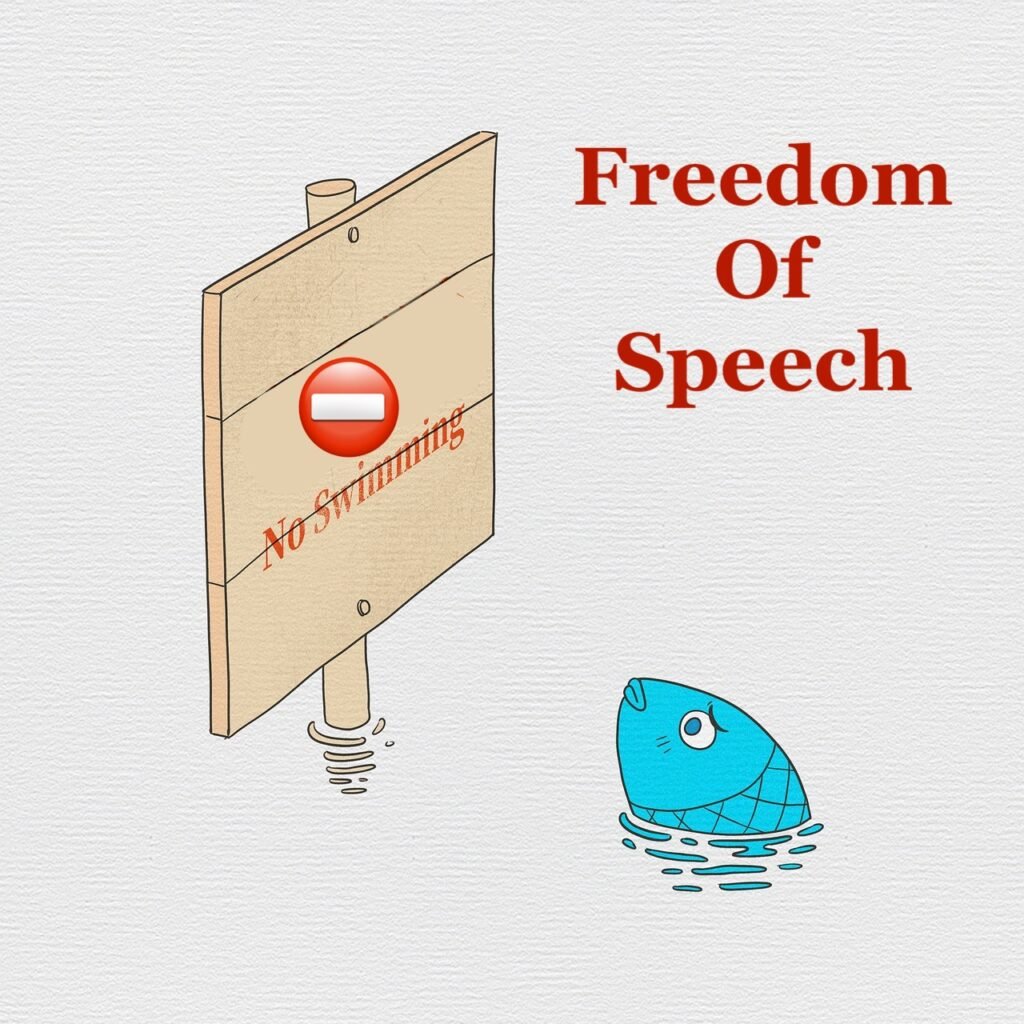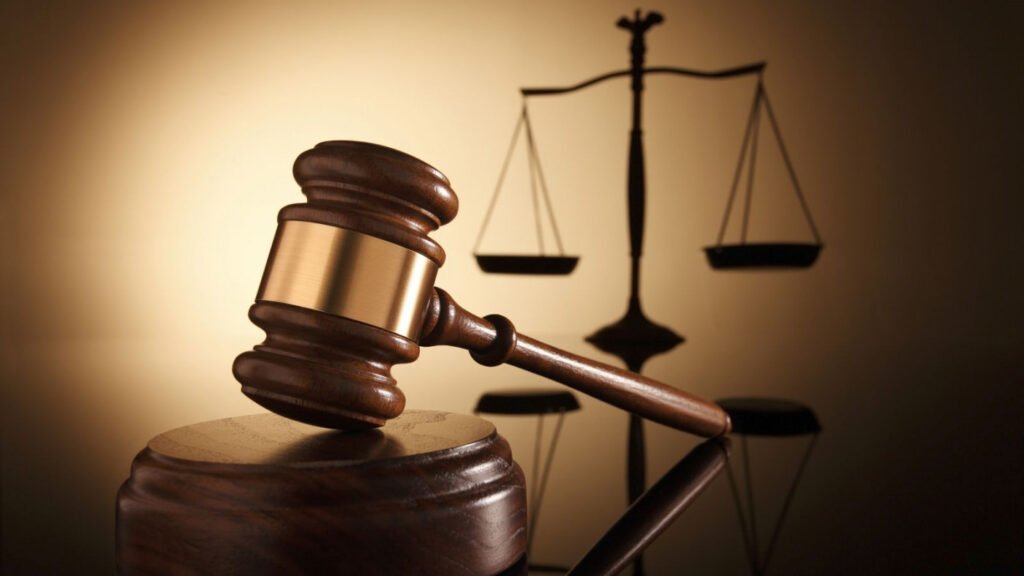In a democratic country like India, freedom of speech and expression is considered a fundamental right. However, in recent days, there have been concerns about the Indian government’s attempt to restrict this freedom. This article explores the penalties that the government may face from citizens in their attempt to curtail freedom of speech.

We all know that the Constitution has granted us various fundamental rights as citizens of India. These rights are considered a crucial part of the Constitution’s basic structure and hold immense importance in our lives. They uphold the dignity and respect of every Indian citizen. Our Constitution encompasses six fundamental rights, ranging from Article 12 to Article 35. Previously, there were seven rights, but one was removed through a Constitutional amendment in 1978. The right to freedom (Article 19-22) grants us rights like freedom of speech and expression, right to education, freedom of movement, and more.
In today’s digital age, the importance of freedom of speech cannot be overstated. It is a fundamental right that allows individuals to express their opinions, beliefs, and ideas without fear of censorship or punishment. However, there have been instances where the government has attempted to limit or control this freedom. Can the government truly suppress freedom of speech as determined by the Supreme Court?
The Supreme Court plays a crucial role in interpreting and safeguarding the Constitution, including the First Amendment, which protects freedom of speech. Over the years, the Court has consistently recognized the importance of free expression and has set standards to protect it. The Court has made it clear that the government’s power to limit speech is limited and must meet certain criteria to be considered constitutional.
The government’s attempts to restrict freedom of speech can have far-reaching consequences for society. When individuals are unable to express their thoughts and beliefs openly, it hinders the exchange of ideas and the progress of society. It can also lead to an erosion of trust in the government and a deterioration of democratic values.
Related Article:
Understanding Freedom of Speech
Freedom of speech encompasses the liberty to express oneself openly, whether it be through words, actions, or any other form of communication. It grants individuals the opportunity to voice their beliefs, share ideas, engage in constructive debates, and criticize those in power. This fundamental right remains a cornerstone of democratic principles, enabling citizens to participate in the shaping of their society.
It is essential for a healthy democracy and the progress of a nation.
When the government attempts to restrict this fundamental right, charges may be brought before the Supreme Court. By holding the government accountable for its actions, the court plays a crucial role in safeguarding freedom of speech and ensuring that individuals’ voices are not silenced.
When the government itself becomes a source of misinformation, it creates a challenging environment for the exercise of freedom of speech. Citizens may hesitate to speak out against the government’s misleading information for fear of reprisal or the spread of further falsehoods. This self-censorship stifles open dialogue and restricts the free flow of information, ultimately undermining the democratic fabric of society.
The Role of the Media

In situations where the government is misleading with wrong information, the role of the media becomes even more critical. Journalists and news organizations have a responsibility to fact-check and scrutinize government claims. They play a vital role in holding the government accountable for its actions and informing the public with accurate information. A free and independent press is essential in ensuring that citizens have access to reliable sources of news and can make informed decisions.
Penalties the Government May Face

One of the charges the government can face when attempting to restrict freedom of speech is the violation of constitutional protections. In many countries, including the United States, the right to free speech is enshrined in the constitution. Any attempt by the government to curtail this right can be seen as a direct breach of these constitutional protections. The Supreme Court plays a crucial role in upholding these rights and ensuring that the government’s actions align with constitutional guarantees.
- Legal Challenges: When the Indian government restricts freedom of speech, it may face legal challenges from citizens. Individuals, civil society organizations, or human rights activists may file petitions in courts, seeking the protection of their constitutional rights. These legal battles can result in court orders restraining the government from imposing undue restrictions.
- Mass Protests: Attempted restrictions on freedom of speech can lead to mass protests by citizens who feel their voices are being silenced. The strength and size of these protests can put immense pressure on the government to reconsider its policies. These public demonstrations can attract significant media attention, leading to a wider debate on the importance of free expression.
- Government Accountability: Penalties faced by the Indian government for restricting freedom of speech may include increased scrutiny and demand for government accountability. Journalists, media organizations, and activists may intensify their investigative efforts to expose any abuse of power or censorship attempts. This increased scrutiny puts pressure on the government to uphold democratic values.
- International Criticism: India, as a democratic nation, is expected to respect and protect freedom of speech. Attempts to restrict this right can attract international criticism from organizations advocating for human rights globally. Such criticism can damage the reputation of the Indian government on the global stage and impact diplomatic relations.
Article 19 of Indian Constitution – Right to Freedom
As citizens of India, we have certain fundamental rights [a]. Fundamental Rights are enshrined under Part III of the Constitution of India [b]. These fundamental rights are basic rights that we get right from birth. No individual or the State can take the same away from us. There are six Fundamental Rights in total namely, Right to Equality[c] (Article 14-18), Right to Freedom (Article 19-22), Right against exploitation (Article 23 and 24), Right to Freedom of Religion (Article 25-28), Cultural and Educational Rights (Article 29 and 30) and Right to Constitutional Remedies (Article 32).
[a] https://legodesk.com/legopedia/difference-between-fundamental-rights-and-constitutional-rights/ [b] https://legodesk.com/legopedia/facts-about-constitution-of-india/ [c] https://legodesk.com/legopedia/right-to-equality-under-the-indian-constitution/In this article, we will only take a closer look at Article 19, which deals with six fundamental freedoms.
Article 19 of the Indian Constitution prescribes and protects the following kinds of freedoms to all citizens of India –
a) Freedom of speech and expression.
b) Freedom to assemble peacefully and without arms.
c) Freedom to form associations or unions.
d) Freedom to move freely throughout the territory of India.
e) Freedom to reside and settle in any part of the territory of India.
f) Freedom to practise any profession, or to carry on any occupation, trade, or business.
Article 19(1)(a) – Freedom of Speech and Expression –
Freedom of speech is an indispensable element of any democratic country. It is the basis of civilization, and without it, liberty of thought would shrivel. Freedom of speech and expression provides the right to express one’s opinion freely without any fear through any medium. The word “press” is also included under this provision.
Article 19(1)(b) – Freedom of Assembly –
The Constitution allows us the right to hold meetings and take out processions. These processions and meetings may be restricted in the interest of public order or sovereignty.
This article has also been revived and interpreted by the Apex Court several times. Section 144(6) [d] of the CrPC, can be imposed by the Government of India in some areas which make the assembly of five or more people an unlawful assembly.
[d] https://legodesk.com/legopedia/section-144-ipc/This provision was challenged in the case of Kamla Kant Mishra and Ors. v. The state of Bihar [e] on the ground that it violates Article 19(1) of the Constitution of India.
[e] https://indiankanoon.org/doc/1766722/Article 19(1)(c) – Freedom of Association or Union –
The Constitution of India declares that all citizens of India shall have the right to form associations and unions. The Constitution of India declares that no citizen has a fundamental right under Article 19(1)(c) to be a voluntary association or a cooperative society. The right to be a member of the same is governed by the provisions of the statute. So, the right to be or to continue being a member of any society is a statutory right.
Article 19(1)(d) – Freedom to move freely throughout the territory of India –
No person can be restricted to move from one part of the State to another. The freedom of movement under Article 19 allows us to move from one state to another and anywhere within the State. There are certain exceptions to this freedom too.
Article 19(1)(e) – Freedom to reside and settle in any part of the territory of India –
As citizens of India, we can reside in any part of the country, which is subject to certain restrictions imposed by the State. An Indian Citizen can reside in any state except the state of Jammu and Kashmir.
Article 19(1)(g) – Freedom to practice any profession, or to carry on any occupation, trade or business –
The Constitution of India guarantees each citizen the right to conduct trade, profession, business, or occupation anywhere in the territory of India.
Also, Part 12 (Article 301-307) of the Constitution of India lists down the provisions relating to trade, commerce, and intercourse. Its objective is to remove barriers in the way of Interstate and Intra-state commercial and trading links.
Protection under Article 19(1)(g) is available to only the citizens of India, whereas, article 301 is available to everybody.
Reasonable Restrictions –
Every freedom comes with restrictions, without which there would be complete chaos in the society. Similarly, Article 19 also provides for ‘reasonable restrictions’ on these freedoms. Therefore, these rights are conditional. The State has the authority to reasonably limit or takes away these six rights on the following grounds –
- Freedom of Speech and Expression
- Sovereignty and Integrity of India.
- Security of the State.
- Friendly relations with foreign States.
- Public order.
- Decency.
- Morality.
- Contempt of court.
- Defamation.
- Incitement to an offense.
- Freedom to assemble peacefully and without arms
- Sovereignty and Integrity of India.
- Public Order.
- Freedom to form associations or unions
- Sovereignty and Integrity of India
- Public order
- Morality
- Freedom to move freely throughout the territory of India
- Interests of the general public
- Protection of the interests of any Scheduled Tribe
- Freedom to reside and settle in any part of the territory of India
- Interests of the general public
- Protection of the interests of any Scheduled Tribe
- Freedom to practice any profession, or to carry on any occupation, trade or business
- Interests of the general public
- State prescribed professional or technical qualifications
- State-run trade, business, industry, or service that excludes the participation of citizens or others either completely or partially.
The Right to Freedom is one of the most important Fundamental Rights under the Constitution of India. Without freedom, there can’t be any democratic setup. People will not be able to grow and develop if they do not have the freedom to do anything.
Source: LEGO DESK
Also Read:
